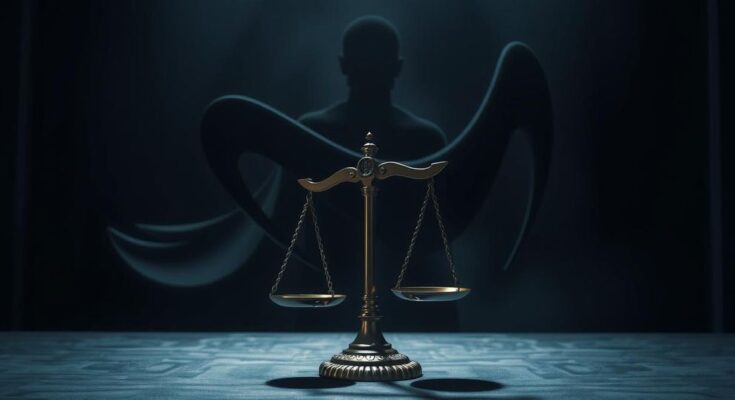Human Rights Crisis in Georgia
Tbilisi’s human rights landscape is darkening as journalist Mzia Amaghlobeli enters her third week on a hunger strike in Rustavi Prison. Her health is deteriorating, with her lawyer indicating she can barely walk to their meeting room. Arrested on January 12 amid anti-government protests, Amaghlobeli is one of more than 40 individuals facing criminal charges amidst a turbulent political atmosphere.
Political Turmoil and Police Crackdown
The unrest follows a controversial parliamentary election that further entrenched the ruling party, Georgian Dream, whose opponents claim the vote was manipulated. This political shift aligns Georgia closer to Russian influence, prompting the halt of European Union accession talks. Critics assert that the party’s tightening grip resembles the repressive tactics employed by President Putin in Russia, focusing on restricting freedoms of speech and assembly.
Accusations Against Protesters
Prime Minister Irakli Kobakhidze has justified the government’s actions, suggesting protesters aim to destabilize the state like the 2014 Ukrainian uprising. New laws impose restrictions akin to Russian regulations, curtailing the rights of NGOs and media, and facing condemnation from the EU. Human rights advocates assert that the government’s aggressive approach is simply silencing dissent.
Abuse Reports Emerge
Amaghlobeli faces severe allegations, including assaulting a police officer, which could lead to a seven-year sentence. Reports from detained individuals indicate widespread physical and verbal abuse by law enforcement. “All of that paints a picture of an aggressive campaign to halt these demonstrations, the majority of which are reported to have been peaceful,” stated Alice Jill Edwards, U.N. Special Rapporteur on torture.
Abuse During Arrest
A video has surfaced showing Amaghlobeli striking Batumi’s police chief during the protest, which legal representatives argue was provoked by prior abuse. They tell of humiliation and denial of basic needs while in custody, claims that remain under investigation by the authorities. The Prime Minister has insisted on clear evidence of misconduct despite the claims of abuse.
Chilling Effects for Journalists
The implications of Amaghlobeli’s arrest loom large over the journalistic community. Nestan Tsetskhladze, editor at Netgazeti, emphasized the significant chilling effect it has on independent media in Georgia. “If this is how they are treating the founder of the most prominent independent media… others can be treated the same way or even worse,” he remarked.
The Kafkaesque Arrest of Andro Chichinadze
Andro Chichinadze, a celebrated actor, also faces severe consequences following his participation in protests. Arrested on December 5, he faces charges involving group violence, which could lead to a nine-year prison term. His defense claims that the prosecution lacks substantial evidence, while Chichinadze likened his situation to a Kafkaesque trial, highlighting the absurd nature of his predicament.
Continued Repression and Future Legal Changes
As protests persist, authorities have made further arrests, with claims of excessive force during detentions reported across media. Georgian Dream has announced plans to introduce harsher penalties for demonstrators, drawing parallels to tactics seen in Russia and Belarus. Transparency International Georgia’s Eka Gigauri noted the alarming similarity to oppressive actions targeting civic activists in those countries.
The Sentiment of European Aspirations
The crackdown reflects a betrayal of Georgia’s European ambitions, as echoed by Lika Guntsadze, Chichinadze’s mother. “We chose Europe and were taken to Russia,” she lamented, invoking a sense of despair amidst a longing for democratic freedoms and a clear path aligning with European values. This sentiment resonates widely, mirroring the growing frustration over governmental repression in light of external aspirations.
According to human rights groups, dozens have been jailed in Georgia during a crackdown resembling Russian tactics. Journalist Mzia Amaghlobeli’s health is declining on hunger strike, while new laws threaten freedoms. Reports of abuse among detainees raise alarms. The government’s plans for harsher penalties evoke comparisons to repression seen in neighboring Russia.
The repressive environment in Georgia has alarmed human rights advocates as the government intensifies its crackdown on dissent. Jailed journalist Mzia Amaghlobeli’s hunger strike underscores the dire situation, while ongoing protests reveal a nation grappling with its aspirations for democracy against the backdrop of increasing authoritarianism. The sentiment among activists and families of the arrested conveys a deep-seated concern for personal freedoms and the state’s direction.
Original Source: kstp.com



